

2023-11-28 11:35:00 Tue ET
technology social safety nets education infrastructure health insurance health care medical care medication vaccine social security pension deposit insurance
David Colander and Craig Freedman (2019)
Where economics went wrong: Chicago abandonment of classical liberalism
David Colander and Craig Freedman argue that the economic science went wrong when there was no classical liberal firewall between economic theories and policy reforms. Colander has long advanced the concept that the economic science must be neither positive nor normative. Alternatively, the economic science must involve the art of economic policy reforms. Here art requires vision and acumen in addition to knowledge and technique. Economists thus serve as economic policy engineers instead of natural scientists. Through the particular story of the Chicago school of economic thought, Colander and Freedman suggest that economic policy reforms can benefit substantially from neoliberalism (more art and less calculation). A thick history of the Chicago school of economic thought reminds us of the importance of inclusive institutions, not only for understanding the macro economy but also for thinking about how inclusive institutions affect our behavioral choices.
Neoliberal public choice continues to spin national taxation and several other forms of government intervention. The key post-crisis consensus focuses on government intervention as the primary root cause of socioeconomic malaise in several OECD countries. Ideology continues to inform public policy, and neoliberalism specifically advocates a minimal role for the state in economic affairs such as taxation, health care, trade, infrastructure, and immigration. Neoliberal public choice emphasizes regulatory failures rather than historical country-specific experiences.
The sheer predominance of utilitarian myopia reflects fundamental misconceptions about the proper role of government. Contrary to the post-crisis consensus, active strategic public-sector investment is critical to both economic revival and financial stability. The state should act as an investor of first resort, rather than a lender of last resort, for greater tech advances and revolutions in finance, energy, transport, medicine, and information communication. The government can learn much from the best business minds of Warren Buffett and George Soros in finance, Elon Musk in energy and autonomous transport, Peter Diamandis and James Brewer in health care and medicine, as well as Steve Jobs, Tim Cook, Bill Gates, Larry Page, and Jeff Bezos in information communication technology. Effective capitalism calls for both free market design and facilitative state involvement in economic governance and regulation.
Economists should borrow from all of the social sciences such as political science, sociology, law, finance, and management etc. Also, economists should blend hard knowledge with soft communication and qualitative judgment. With fresh insights, Colander and Freedman inspire many economists to seriously reflect on the nature of the economic science. The inevitable transformation of the economic science to a policy-driven discipline has cost us what Nobel Laureate James Buchanan called the soul of the economic science, i.e. a sense of prevalent history, literature, and philosophy. Adoption of the scientific method has often led to the common belief that economic theory can deliver useful practical knowledge. However, this belief overrides the limits of economic theory in a complex world where many people do not always behave as rational actors. These economic actors often face the myriad influences of culture, society, history, and government structure etc.
Colander and Freedman induce many economists to consider some fundamental questions. What do economists mean by classical liberalism? How does classical liberalism relate to the economic science? How can classical liberalism inform how we practice the economic science in both positive and normative views? Colander and Freedman argue that most economists should serve as policy engineers: they deploy expert knowledge with the socio-institutional ability to adjust many policies to different circumstances. These key economists should further act as benevolent social planners, impartial observers, and moral philosophers. For these reasons, most economists should strive to incorporate democratic processes into economic models and policy reforms.
The old pre-war Chicago school of economic thought includes a firm commitment to competitive markets and laissez faire, an interest in institutional design, and an antipathy to the New Deal (intense government intervention). Also, the new post-war Chicago school of economic thought incorporates Friedman positivism, Stigler empiricism, and rational choice extensions in association with Becker, Coase, and Lucas (Buchanan, 2010, pp.2). Many of these Chicago economists eventually win the top academic accolade, the Nobel Prize in the Economic Science, for serving as faithful defenders of classical liberalism (Colander and Freedman, 2019, pp.4). At its most general level, classical liberalism can often be understood as a politico-intellectual tradition of individual freedom in the particular context of constitutional government (Bell, 2014, pp.699). With classical liberalism, democratic institutions and free markets are preeminent. This political ideology results in normative policy prescriptions for laissez faire and minimal government intervention. Colander and Freedman argue that classical liberalism hence helps separate scientific economic research from free market policy design. Adam Smith and John Stuart Mill would best exemplify this specific method of classical liberalism (Colander and Freedman, 2019, pp.5). Strictly separating economic policy design from economic theory can allow the classical economists to agree on philosophical issues with significant and legitimate differences on both policy design and practice (Colander and Freedman, 2019, pp.20-128). Arthur Pigou is another economic follower of classical liberalism. Pigou presents his economic analysis as only an input into Pigouvian fiscal policy design. Pigouvian taxation counteracts the adverse side effects, externalities, and information asymmetries in association with business activities (e.g. pollution and environmental degradation) (Colander and Freedman, 2019, pp.33-84). Likewise, progressive income taxation should reflect the reasonable slope of each relevant consumer indifference curve. The resultant firewall separation between economic theory and policy cannot be made more evident in this research.
The Chicago classical economists show a deep commitment to individual freedom and laissez faire. These economists serve as vocal advocates of the virtues of both free market competition and minimal government intervention. Specifically, Nobel Laureate James Buchanan carefully separates economic theory from policy design; and the former involves abstract science and the latter concerns predictive science (Buchanan, 1979, pp.49; Buchanan, 2007, pp.147-154). Within the Chicago school of economic thought, many proponents of classical liberalism uphold a specific set of ideological principles in support of both market competition and rational choice, instead of a specific econometric method (Colander and Freedman, 2019, pp.163). Ideology continues to inform public policy, and neoliberalism specifically advocates a minimal role for the state in economic affairs such as taxation, health care, trade, infrastructure, and immigration. Subsequent neoliberal public choice emphasizes regulatory failures rather than country-specific economic policy reforms. Effective capitalism calls for free market competition and minimal government intervention in economic development.
Colander and Freedman carefully draw a distinction between economic science and economic policy. Economic science focuses on developing a deductive model of the broader macro economy on the basis of both self-interest and rationality. In practice, any attempt to bifurcate economic policy helps insulate economic science (and its search for the truth) as much as possible from the inevitable intrusion of human values and beliefs when economic theory confronts policy reality (Colander and Freedman, 2019, pp.26).
However, economic policy cannot flow directly from economic science. In fact, the normative policy prescriptions cannot flow from the positive economic science. In practice, the economic science can only contribute some expert knowledge to the policy problem. The economic science cannot definitely tell us what politicians and technocrats should try to accomplish in due course. In one view, economists build and design their art but not science. In another view, the economic science can be only a separate branch of study from economic policy implementation (Colander and Freedman, 2019, pp.2). Therefore, Colander and Freedman develop a logical equivalence between these long prevalent views. In this fundamental sense, most economists should protect their art and science from the vagaries of policy practice, as the latter has to ease political concerns and potential conflicts of interest. From this viewpoint, many economists can still theorize, but politicians and technocrats should not base policy conclusions on economic theories (Colander and Freedman, 2019, pp.127).
If the truths of economic science are both timeless and universal, a one-size-fits-all approach to economic policy follows this proposition (Barber, 1995, pp.1948). The U.S. institutional economists such as Douglass North, Daron Acemoglu, and James Robinson etc adopt the opposite view to emphasize that economic growth depends on specific times, places, and circumstances at some particular junctures of human history. With informative case studies and field experiments, this method focuses on the historical and contextual evolution of inclusive institutions (vis-à-vis extractive institutions). From time to time, scientific econometric evidence alone cannot be made persuasive. This evidence must rely on cogent economic insights and arguments that flow from the genuine conviction held by followers of classical liberalism (Buchanan, 2000, pp.113). Too often economists forget this moral basis and raison d'être of their science.
As Colander and Freedman suggest, the classical economists recognize that the economic science often relates to policy matters when these economists need to evaluate the costs and benefits of specific policy issues. These economists seem to have the desire to conduct practical policy work in economic reforms. However, these classical economists choose to put a firewall between scientific results and policy conclusions as a necessary step in making the positive science unassailable and hence as useful as possible. As a consequence, these classical economists cannot view any analysis with policy applications as part of the positive science. In this view, the economic science should embed art, vision, and business acumen in integrating all relevant social and economic factors into policy analysis (Colander and Freedman, 2019, pp.130).
Colander and Freedman identify what economists should not try to accomplish in due course. First, economists should not deliberately derive policy conclusions and recommendations from specific economic theories because this derivation ignores the importance of socio-institutional, historical, and cultural factors in the broader context of policy practice. Second, economists should not blindly argue to win any policy debates (Colander and Freedman, 2019, pp.39-41). Third, most economists should not apply the scientific method to policy practice. Colander and Freedman argue that the scientific method is an inherently erroneous approach for economic policy design because this method implies the superiority of one method over most others, hardens opinions, obscures nuances, and discourages creativity (Colander and Freedman, 2019, pp.140).
Colander and Freedman draw a straight line from the British classical economic science to the classical liberalism of old Chicago school. The new Chicago school breaks with this tradition as a fundamental response to paradigm shifts in post-war economic practice and Samuelson-style economic science. To win arguments to drive policy decisions, the new Chicago school emphasizes testable hypotheses and the empirical verification of economic theory as the best science.
Economists break down theories into testable hypotheses for particular problems. Rigorous econometric studies help investigate which of the results best fit the facts. If economists are sufficiently competent to verify these econometric studies, what these economists agree to accept becomes the economic science. This economic science grows to fit many changes and discoveries in the facts. The new post-war Chicago school takes this economic science a step further. Formal mathematical theory underpins the new Chicago empirical studies, and rigorous econometric or statistical methods help assess the testable hypotheses.
Daron Acemoglu, Simon Johnson, and James Robinson (2001 and 2002) present empirical analysis of the robust nexus between colonialism and subsequent poor social infrastructure (and thus subpar economic growth). In their institutional view, geographic differences between (sub)tropical and temperate areas at the time of colonization have caused Europeans to colonize with both extractive and inclusive institutions. The different strategies of colonization affect subsequent institutional development. For this reason, the chosen establishment of inclusive or extractive institutions serves as a crucial source of global differences in social infrastructure and economic growth nowadays.
Acemoglu, Johnson, and Robinson (2001) empirically emphasize the geographic disease environment. Europeans face extremely high mortality risks in key tropical areas (particularly from malaria and yellow fever), but the average death rates are substantially lower in temperate regions. In the tropical high-disease environments, European colonizers establish extractive states or authoritarian institutions in order to exploit natural resources from these colonies with little settlement and property protection. In the temperate low-disease environments, European colonizers tend to establish inclusive states or settler colonies with democratic rule of law.
Acemoglu, Johnson, and Robinson (2002) focus on the previous level of economic development on the eve of colonization. In key colonies with dense population and greater institutional development, it proves to be more attractive for Europeans to establish extractive states than inclusive states and settler colonies. This particular colonization strategy leads to the great reversal of fortune that the settler colonies with inclusive institutions tend to experience better economic growth and middle-class income stability (in stark contrast to extractive states). This key empirical fact prevails in the economic comparison of North America versus South America.
As Colander and Freedman suggest, economists cannot pretend that their theories constitute value-free science (Simons, 1938, pp.1). Economists should neither put their faith in discretionary bureaucratic authorities to manage aspects of the macro economy (Simons, 1934). Economists should not force government intervention in free markets because this approach may or may not improve the creation as well as distribution of both wealth and income. Economists should not seek to restrain free trade that helps improve the economic lives of most others worldwide (Simons, 1948). In essence, Colander and Freedman contend that economists should not proffer policy advice from economic theory without due attention to social, political, and historical factors. This consideration makes economic policy more akin to the engineering science in stark contrast to the natural sciences.
Economic engineers identify and solve problems, look for new ways to improve the situation, help people make better choices and decisions, and increase efficiency in the broader business context. This view implicitly accepts a prominent role for government and a reasonable rationale for government intervention. The engineer analogy suggests that much work by social scientists is a combination of preaching different forms of economic science for practical purposes of policy persuasion.
Economists should adopt a classical liberal outlook. This outlook encompasses a skepticism of mainstream economic science with a genuine appreciation of what mainstream economic science has accomplished in due time. Economists should allow theory to inform aspects of policy, without applying theory as a blueprint for both policy design and practice. Economists should rely on common sense over abstract methodology. Colander and Freedman identify 6 contemporary scholars who exemplify the best of the classical liberal economists. These 6 economists are Edward Leamer, Ariel Rubinstein, Alvin Roth, Paul Romer, Amartya Sen, and Dani Rodrick (Colander and Freedman, 2019, pp.144).
Colander and Freedman argue for constantly subjecting our own research work to an impartial spectator test that considers the alternative viewpoint (Colander and Freedman, 2019, pp.141). Colander and Freedman argue that embracing classical liberalism would require changes not only in how we conduct and assess research, but also in how we teach the economic science. Few students receive substantial education in the practical craft of both economic policy design and implementation (Colander and Freedman, 2019, pp.122). Adopting classical liberalism often helps change this behavioral bias in the broader socio-institutional context of economic science. Economists should hence focus a bit more on how economic models and econometric tools fit policy design and implementation. For instance, most macro economists should often apply the dynamic stochastic general equilibrium (DSGE) models to calibrate impulse responses of covariates (such as output and inflation) to marginal changes in the short-term interest rate. This DSGE calibration can help macro economists overcome the Lucas critique. Further, most macro economists should apply vector autoregression (VAR) analysis to empirically assess how soon covariates react to marginal changes in the realizations and expectations of output, inflation, and the interest rate (Colander and Freedman, 2019, pp.161).
Economists should engage in internal debates to encourage external criticisms. In addition, economists should reflect on the positive aspects of theory as economic actors may not be rational utility maximizers in the presence of regulatory failures, information asymmetries, network effects, externalities, and disequilibrium lags etc. From time to time, economic models may or may not be ideologically neutral. Most economists should attempt to insulate the economic science (and its search for the truth) as much as possible from the inevitable intrusion of human values (Colander and Freedman, 2019, pp.26). Economists should be humble in playing their crucial role as economic engineers. These economists should accept more of a backstage role, instead of trying to absorb the limelight. For these reasons, economists should be wary about holding strong policy views (Colander and Freedman, 2019, pp.129-130).
Edward Lazear (2000) regards the economic science as the premier social science because of its success in the long prevalent institutional context of governments, universities, and think tanks etc. The economic science claims this position on the grounds of greater intellectual ability, and economists often tend to emphasize our mathematical and quantitative skills (Colander, 2018; Fourcade, Ollion, and Algan, 2015). Mathematical formalism and statistical sophistication validate the economic science as a genuine science (Lazear, 2000, pp.99). We often continue to protect this preeminent position by our commitment to mathematical rigor, rather than by any specific set of tools, methodologies, or beliefs (Colander, 2006). In summary, Colander and Freedman advance the argument that economic science would be better off if we return to the more classical liberal attitude. This paradigm shift would involve the more careful separation of economic theory from policy practice.
Economists often serve as economic policy engineers instead of natural scientists. Through the particular story of the Chicago school of economic thought, Colander and Freedman suggest that economic policy reforms can benefit substantially from neoliberalism (more art and less calculation). A thick history of the Chicago school of economic thought reminds us of the importance of inclusive institutions, not only for understanding the economy but also for thinking about how inclusive institutions affect our behavioral choices.
This analytic essay cannot constitute any form of financial advice, analyst opinion, recommendation, or endorsement. We refrain from engaging in financial advisory services, and we seek to offer our analytic insights into the latest economic trends, stock market topics, investment memes, personal finance tools, and other self-help inspirations. Our proprietary alpha investment algorithmic system helps enrich our AYA fintech network platform as a new social community for stock market investors: https://ayafintech.network.
We share and circulate these informative posts and essays with hyperlinks through our blogs, podcasts, emails, social media channels, and patent specifications. Our goal is to help promote better financial literacy, inclusion, and freedom of the global general public. While we make a conscious effort to optimize our global reach, this optimization retains our current focus on the American stock market.
This free ebook, AYA Analytica, shares new economic insights, investment memes, and stock portfolio strategies through both blog posts and patent specifications on our AYA fintech network platform. AYA fintech network platform is every investor's social toolkit for profitable investment management. We can help empower stock market investors through technology, education, and social integration.
We hope you enjoy the substantive content of this essay! AYA!
Andy Yeh
Chief Financial Architect (CFA) and Financial Risk Manager (FRM)
Brass Ring International Density Enterprise (BRIDE) ©
Do you find it difficult to beat the long-term average 11% stock market return?
It took us 20+ years to design a new profitable algorithmic asset investment model and its attendant proprietary software technology with fintech patent protection in 2+ years. AYA fintech network platform serves as everyone's first aid for his or her personal stock investment portfolio. Our proprietary software technology allows each investor to leverage fintech intelligence and information without exorbitant time commitment. Our dynamic conditional alpha analysis boosts the typical win rate from 70% to 90%+.
Our new alpha model empowers members to be a wiser stock market investor with profitable alpha signals! The proprietary quantitative analysis applies the collective wisdom of Warren Buffett, George Soros, Carl Icahn, Mark Cuban, Tony Robbins, and Nobel Laureates in finance such as Robert Engle, Eugene Fama, Lars Hansen, Robert Lucas, Robert Merton, Edward Prescott, Thomas Sargent, William Sharpe, Robert Shiller, and Christopher Sims.
Follow our Brass Ring Facebook to learn more about the latest financial news and fantastic stock investment ideas: http://www.facebook.com/brassring2013.
Follow AYA Analytica financial health memo (FHM) podcast channel on YouTube: https://www.youtube.com/channel/UCvntmnacYyCmVyQ-c_qjyyQ
Free signup for stock signals: https://ayafintech.network
Mission on profitable signals: https://ayafintech.network/mission.php
Model technical descriptions: https://ayafintech.network/model.php
Blog on stock alpha signals: https://ayafintech.network/blog.php
Freemium base pricing plans: https://ayafintech.network/freemium.php
Signup for periodic updates: https://ayafintech.network/signup.php
Login for freemium benefits: https://ayafintech.network/login.php
If any of our AYA Analytica financial health memos (FHM), blog posts, ebooks, newsletters, and notifications etc, or any other form of online content curation, involves potential copyright concerns, please feel free to contact us at service@ayafintech.network so that we can remove relevant content in response to any such request within a reasonable time frame.
2018-03-17 09:35:00 Saturday ET
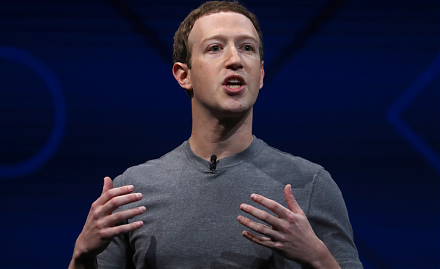
Facebook faces a major data breach by Cambridge Analytica that has harvested private information from more than 50 million Facebook users. In a Facebook pos
2019-11-26 11:30:00 Tuesday ET
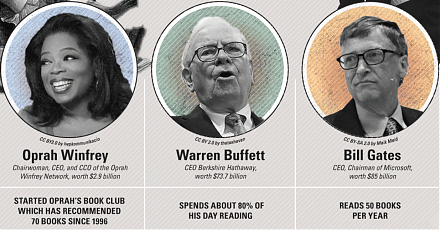
AYA Analytica finbuzz podcast channel on YouTube November 2019 In this podcast, we discuss several topical issues as of November 2019: (1) The Trump adm
2025-07-05 11:23:00 Saturday ET
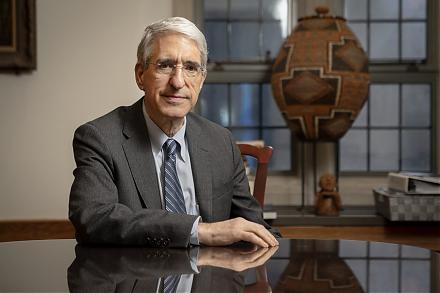
Former New York Times science author and Harvard psychologist Daniel Goleman explains why working with emotional intelligence helps hone our social skills f
2019-10-23 15:39:00 Wednesday ET
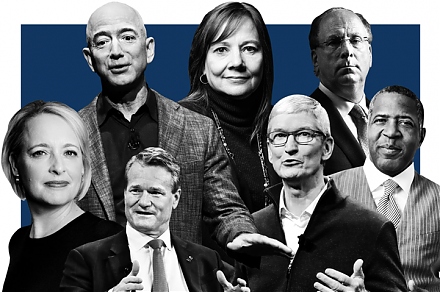
American CEOs of about 200 corporations issue a joint statement in support of stakeholder value maximization. The Business Roundtable offers this statement
2018-09-25 10:35:00 Tuesday ET
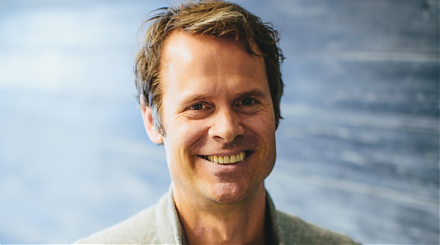
Sirius XM pays $3.5 billion shares to acquire the music app company Pandora. This acquisition would form the largest audio entertainment company worldwide.
2025-10-31 12:26:00 Friday ET
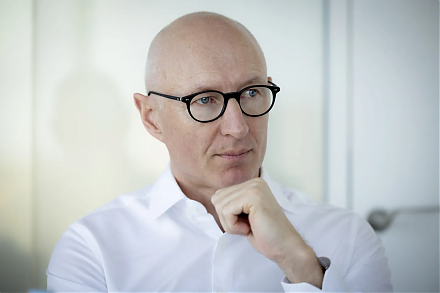
With respect to wider weight loss treatment and obesity treatment, the global market for GLP-1 medications now grows substantially to benefit more than 1 bi